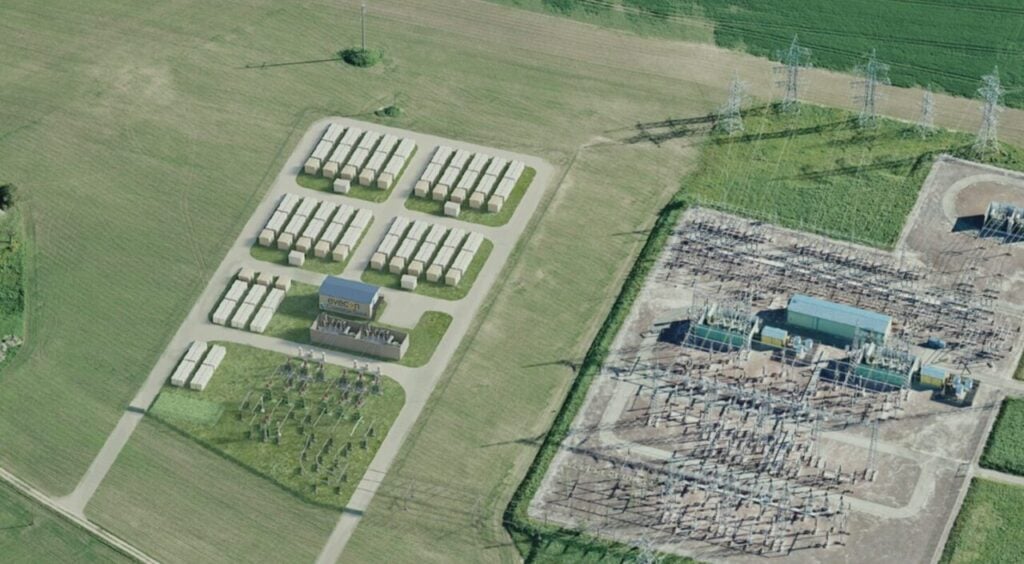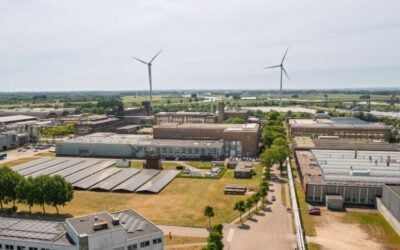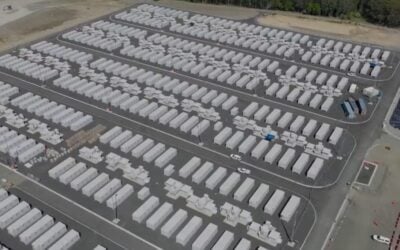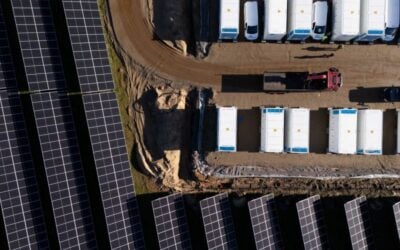
A double header of Baltic BESS news, with financing secured for two large-scale BESS projects in Estonia and Lithuania’s capex support scheme oversubscribed by 2x.
BSP finances Estonia BESS
Baltic Storage Platform (BSP) has secured what it claimed is a first-of-its-kind €86.5 million (US$100 million) financing for two large-scale battery energy storage system (BESS) projects totalling 200MW/400MWh in Estonia. BSP is a joint venture between independent power producer (IPP) Corsica Sole, developer Evecon and asset manager Mirova.
The financing comes from the European Bank for Reconstruction and Development (EBRD), Edmond de Rothschild Asset Management, and the Nordic Investment Bank (NIB) for the Hertz 1 and Hertz 2 projects, on which construction started around a year ago.
Hertz 1 in Kiisa was energised on October 1st 2025, with commissioning scheduled for end-2025 and the full suite of grid services expected by Q1 2026. Hertz 2 is under construction and is scheduled to start commercial operation by the end of 2026.
Try Premium for just $1
- Full premium access for the first month at only $1
- Converts to an annual rate after 30 days unless cancelled
- Cancel anytime during the trial period
Premium Benefits
- Expert industry analysis and interviews
- Digital access to PV Tech Power journal
- Exclusive event discounts
Or get the full Premium subscription right away
Or continue reading this article for free
BSP claimed it is the first project financing in the Baltic countries that is exclusively structured around the revenues generated by energy storage assets.
The EBRD and NIB’s financing benefits from a ‘first-loss’ risk cover from the EU under its InvestEu programme. The EBRD also led on a similar ‘first-loss’ financing for the renewables and storage pipeline financing from IPP Renalfa, in July. A first loss guarantee is one where a guarantee provider agrees to bear losses incurred up to an agreed percentage in the event of default by the borrower.
The collaboration shows how large-scale storage projects are now considered bankable assets capable of attracting private capital to support Europe’s energy transition, BSP said.
Lithuania BESS capex grant scheme oversubscribed
The Ministry of Energy of Lithuania’s €45 million capex support programme for BESS received 30 applications totalling €80 million of requests, it said last week.
The €45 million in funding is a follow-on funding from the initial €102 million scheme which closed in June this year. Projects need to be at least 15MW in output, no larger than 300MWh in capacity per project, and the subsidies are capped at up to 30% of eligible costs and with a maximum funding amount per megawatt-hour (MWh) of €100,000.
The total capacity the Ministry is aiming to be support with the capex schemes is 1,545MW/3,232MWh.
“We see that the market is active and ready to invest in the flexibility and reliability of the Lithuanian energy system. High-capacity storage facilities are critically important in balancing the growing renewable energy capacity and ensuring the stability of the entire system,” said energy minister Žygimantas Vaičiūnas.
The Ministry is aiming for there to be at least 1.5GW/4.4GWh of large-scale BESS online by 2028.
The Baltic region, which comprises Estonia, Lithuania and Latvia, is relatively small compared to Europe’s major markets like GB and Germany, but is described by some as one of the most attractive with lucrative ancillary service opportunities available for first-movers.
Its market development was kickstarted by the region’s decoupling from Russia, increasing the need for flexibility in the short-term, while capex schemes such as these are helping to continue its growth.





